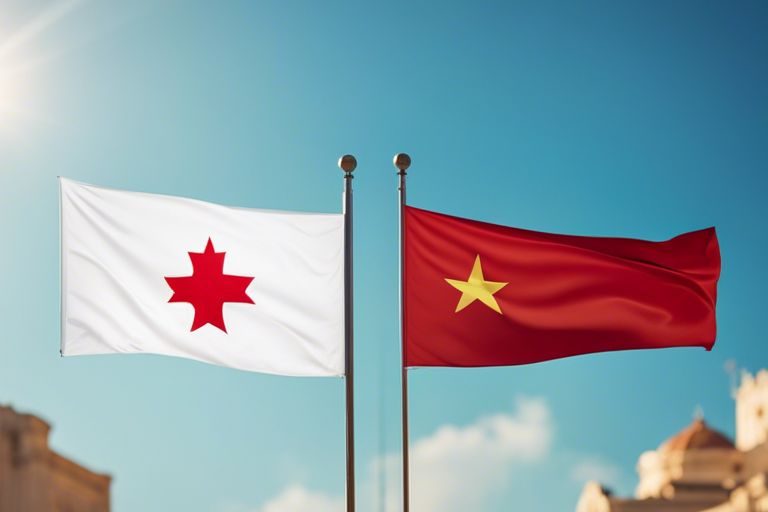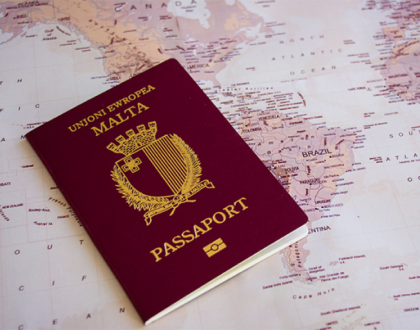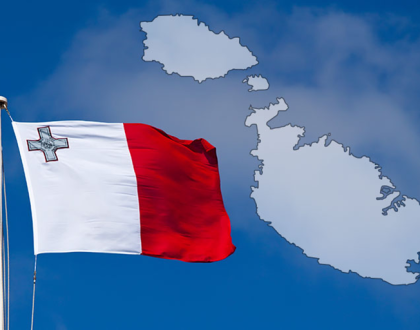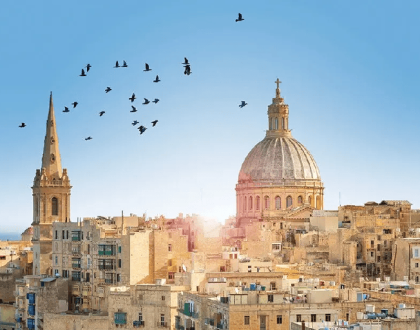Malta vs. Curacao – Licensing Showdown

Most online #casinos and #gambling operators face a crucial decision when it comes to obtaining a #license – #Malta or #Curacao? These two jurisdictions are among the most popular choices for establishing online #gaming businesses due to their long-standing history in the industry and well-established regulations. However, there are key differences between the two that can greatly impact the operations and reputation of any gambling enterprise.
Historical Background
History of Gambling Licensing in Malta
To understand the current gambling licensing landscape in Malta, it is vital to examine into its history. The Maltese gaming industry dates back to the early 2000s when the Small States Lottery Act was passed, laying the foundation for what would later become one of the most reputable licensing jurisdictions in the world. The Lotteries and Other Games Act of 2001 further solidified Malta's position in the online gaming sector by introducing regulations for remote gambling.
Evolution of Licensing in Curacao
One of the lesser-known but still significant players in the online gaming licensing world is Curacao. The island nation has been issuing online gambling licenses since the early 1990s, making it one of the oldest eGaming jurisdictions globally. Unlike Malta, Curacao provided a more accessible and affordable option for operators looking to enter the market. Over the years, the Curacao eGaming Licensing Authority has adapted its regulations to keep pace with technological advancements and industry standards.
Curacao‘s regulatory framework offers operators flexibility and leniency, making it an attractive option for many in the iGaming industry. However, this relaxed approach has also led to concerns about the credibility and trustworthiness of Curacao-licensed operators. It is vital for players to exercise caution when engaging with online platforms licensed in Curacao to ensure a safe and fair gaming experience.
Legal Framework and Legislation
Regulatory Bodies in Malta
Some of the regulatory bodies overseeing the gambling industry in Malta include the Malta Gaming Authority (MGA) and the Financial Intelligence Analysis Unit (FIAU). These entities work together to ensure that operators comply with strict regulations and adhere to anti-money laundering protocols.
Regulatory Authorities in Curacao
The regulatory authority responsible for overseeing gambling in Curacao is the Curacao eGaming Licensing Authority. One of the main advantages of obtaining a license from this authority is the relatively low cost compared to other jurisdictions.
Comparison of Legal Mandates
MaltaCuracaoMalta has a comprehensive regulatory framework in place, with strict requirements for operators to meet before obtaining a license. This includes background checks on key personnel, player protection measures, and regular audits.Curacao, on the other hand, has a more streamlined process for obtaining a license, making it a popular choice for startups and smaller operators. However, the level of oversight and player protection may not be as robust as in other jurisdictions.
To maintain compliance with the respective legal mandates, operators in Malta and Curacao must adhere to the guidelines set forth by the regulatory bodies in each jurisdiction. Failure to do so can result in fines, penalties, or even revocation of their license.
Framework
Regulatory authorities play a crucial role in ensuring the integrity and fairness of the gambling industry. They are responsible for monitoring operators, enforcing regulations, and investigating any potential violations. It is important for operators to work closely with these authorities to maintain a transparent and compliant operation.
Licensing Procedures
Steps to Obtain a Gaming License in Malta
Malta: Obtaining a gaming license in Malta is a prestigious and rigorous process overseen by the Malta Gaming Authority. The first step is to submit a detailed application form along with all the required documents. These documents include proof of identity, financial standing, business plan, and technical setup. A thorough background check on the applicant will also be conducted to ensure the integrity of the operation.
Process for Acquiring a Curacao Gaming License
Gaming: The process for acquiring a Curacao gaming license is relatively straightforward compared to Malta. Operators need to submit their application along with the necessary supporting documents to the Curacao e-Gaming Licensing Authority. The documentation will be reviewed, and if all requirements are met, the license will be issued. However, it is imperative to note that the reputation of Curacao licenses is not as stringent as those from other jurisdictions.
Obtain: It is important to note that the Curacao license is perceived to have a looser regulatory framework compared to other jurisdictions such as Malta. This difference in regulation can impact the reputation and credibility of operators holding a Curacao license.
Comparative Analysis of the Licensing Process
| Malta Gaming License | Curacao Gaming License |
| Stringent application process | Simpler application process |
| High reputation in the industry | Perceived to have a lower reputation |
| Strict regulatory oversight | Less regulatory scrutiny |
An in-depth comparison of the licensing process between Malta and Curacao reveals significant differences in the level of regulatory scrutiny and reputation. While Malta offers a stringent and reputable licensing procedure, Curacao's process is perceived as more accessible but potentially less respected in the industry.
Taxation and Fees
Tax Structure for Licensed Operators in Malta
Now, in Malta, licensed operators are subject to a tax rate of 5% on real income generated from their operations. This tax is calculated on the net win, which is the total amount wagered by players, minus the winnings paid out. Malta also offers tax refunds of up to 85% for dividends paid to shareholders, making it an attractive option for companies looking to establish a presence in a tax-friendly jurisdiction.
Fee and Tax Schedule for Curacao License Holders
An integral part of the Curacao licensing process is the annual license fee, which is approximately $5,000. In addition to this fee, operators are required to pay a gaming tax of 2% on net profits. This tax is significantly lower than in many other jurisdictions, making Curacao an appealing choice for companies seeking a cost-effective licensing solution.
Fees and taxes in Curacao are relatively low compared to other jurisdictions, making it a cost-effective option for gaming companies.
Financial Implications for Gaming Companies
License fees and tax rates play a crucial role in determining the financial implications for gaming companies. While Malta offers attractive tax refunds and a stable tax rate, Curacao provides a more budget-friendly option with lower fees and taxes. Companies must carefully consider their financial strategy and long-term goals when choosing between these two licensing jurisdictions.
Now, companies must weigh the pros and cons of each jurisdiction to make an informed decision that aligns with their financial objectives.
Compliance and Enforcement
Monitoring and Regulation in Malta
Many online gambling operators choose Malta as their licensing jurisdiction due to its stringent monitoring and regulation practices. The Malta Gaming Authority (MGA) is responsible for overseeing the industry, ensuring that license holders comply with all legal requirements. The MGA closely monitors operators to prevent money laundering, underage gambling, and fraudulent activities. Regular audits and inspections are conducted to maintain control over the industry.
Supervision and Control in Curacao
With its reputation as a popular licensing choice for online casinos, Curacao also has a system of supervision and control in place. The Curacao eGaming Licensing Authority is tasked with regulating the industry and ensuring that license holders adhere to strict guidelines. The authority oversees the licensing process, conducts regular checks on operators, and monitors compliance with laws and regulations.
Control: The Curacao eGaming Licensing Authority operates under the jurisdiction of the Curacao government and works to maintain the integrity and credibility of the online gambling industry in the region.
Penalties and Sanctions for Non-Compliance
Control: In both Malta and Curacao, strict penalties and sanctions are in place for operators who fail to comply with regulations. Non-compliance can result in fines, suspension, or even revocation of the license. These measures are in place to deter illegal activities and supervise operators effectively.
Reputation and Global Acceptance
International Perception of Malta Gaming Authority (MGA)
Global acceptance of the Malta Gaming Authority (MGA) is widely regarded as one of the best in the industry. The MGA has built a reputation for being a strict regulator that ensures operators adhere to high standards of player protection, responsible gaming, and anti-money laundering practices. This has made Malta a preferred jurisdiction for many online gaming companies looking to establish credibility and trust with international players.
Global Standing of Curacao eGaming
eGaming in Curacao has a more controversial reputation compared to Malta. While Curacao eGaming offers a relatively easy and cost-effective licensing process, its regulatory standards are considered to be less stringent compared to other jurisdictions. This has led to criticisms about the credibility and reliability of Curacao eGaming licenses in the global gaming community.
Despite these criticisms, many online gaming operators still choose to obtain a Curacao eGaming license due to its flexibility and relatively low costs.
Effects of Reputation on Business Operations
An operator's reputation and the jurisdiction they are licensed in can have a significant impact on their business operations. The reputation of the licensing authority can influence players' trust in the platform, partnerships with other businesses, and even the ability to secure financial services. Operators licensed by the MGA benefit from a positive reputation that can open doors to new opportunities and partnerships in the global gaming market.
The credibility of a licensing jurisdiction can also impact an operator's ability to expand into new markets and attract a larger player base.
Industry Challenges and Criticisms
Issues and Controversies in Malta's Licensing System
On the one hand, Malta has established itself as a prominent jurisdiction for online gambling licensing, attracting numerous operators due to its reputable regulatory framework. However, concerns have been raised about the efficiency of the Malta Gaming Authority (MGA) in overseeing licensees and enforcing regulations. Some critics argue that the MGA has struggled to keep pace with the rapid growth of the industry, leading to delays in processing applications and investigations into compliance issues.
Critique of the Curacao Licensing Framework
Malta's competitor, Curacao, has faced its fair share of criticism regarding its licensing framework. The Curacao eGaming Licensing Authority has been accused of being too lenient towards licensees, resulting in a perception of lower regulatory standards compared to other jurisdictions. Critics point out that the ease of obtaining a license in Curacao has attracted various rogue operators who take advantage of the lax regulatory environment to engage in illicit activities.
Maltas competition, Curacao, presents different challenges in terms of regulatory oversight and credibility. The perception of Curacao as a jurisdiction with looser regulations has led to concerns about the integrity of operators licensed there.
Ongoing Debates and Reforms
For instance, one ongoing debate in the industry revolves around the need for stricter regulations and enhanced compliance measures in licensing jurisdictions like Malta and Curacao. Regulators are under pressure to address issues such as money laundering, responsible gambling practices, and the prevention of underage participation in online gaming. Stakeholders are calling for more transparency and accountability from licensing authorities to ensure a fair and safe gaming environment for all.
Framework improvements are crucial to address the growing concerns surrounding online gambling regulations. As the industry continues to evolve, it is crucial for regulators to adapt and implement reforms that prioritize consumer protection and the integrity of online gaming operations.
Market Influence and Business Considerations
Influence of Licensing on Market Entry Strategies
Entry into a new market is significantly impacted by the licensing framework of a jurisdiction. Malta and Curacao offer differing levels of reputation and regulatory standards, which can have consequences for market entry strategies. In the highly competitive online gambling industry, operators must carefully consider the implications of choosing one jurisdiction over another.
Considerations for Operators Choosing Between Malta and Curacao
Considerations for operators deciding between Malta and Curacao include factors such as reputation, regulatory standards, cost, and speed of obtaining a license. Operators need to weigh the benefits of operating in a well-established and respected jurisdiction like Malta against the advantages of a more cost-effective and faster licensing process in Curacao.
When considering which jurisdiction to choose, operators must carefully assess their business goals and risk tolerance. Malta offers a higher level of regulatory oversight and credibility, attracting players who value security and trust. On the other hand, Curacao may be more appealing to operators looking to enter the market quickly and at a lower cost.
Case Examples of Business Decisions in Licensing
Influence of licensing decisions on business strategies can be seen in the case of online gambling operators choosing between Malta and Curacao. Some operators prioritize reputation and player trust, opting for a Malta license despite the higher costs. Others may prioritize cost-efficiency and faster market entry, leading them to choose Curacao despite its lower regulatory standards.
With careful consideration of market influence and business implications, operators can make informed decisions when choosing between Malta and Curacao for their online gambling operations. Each jurisdiction offers unique advantages and considerations that should align with the operator's long-term goals and risk appetite.
To wrap up
As a reminder, the decision between obtaining a license from Malta or Curacao for an online gambling operation involves weighing the advantages and disadvantages of each jurisdiction. While Malta offers a prestigious license with strict regulations and a solid reputation within the industry, Curacao provides a more accessible and cost-effective option with quicker approval times. It ultimately comes down to the specific needs and priorities of the business owner.
Both Malta and Curacao have their own unique advantages, and it is important for online gambling operators to carefully evaluate their options before making a decision. By understanding the differences between these two licensing jurisdictions, businesses can make an informed choice that aligns with their goals and sets them up for success in the competitive online gambling market.
FAQs
What are the main differences between Malta and Curacao for online gambling licenses?
Malta offers a more rigorous licensing process with higher regulatory standards, providing a strong reputation and credibility. In contrast, Curacao has a simpler and more cost-effective licensing process but is perceived as less stringent, which may affect credibility.
How long does it take to obtain a gaming license from Malta compared to Curacao?
The process in Malta is more detailed and time-consuming, involving thorough background checks and documentation. Curacao offers a quicker and less complicated process, making it more accessible for operators.
What are the tax implications for gaming operators licensed in Malta and Curacao?
Malta imposes a 5% tax on net winnings and offers tax refunds for dividends, whereas Curacao has a lower tax rate of 2% on net profits and charges an annual license fee of approximately $5,000.
How do the reputations of the Malta Gaming Authority (MGA) and Curacao eGaming Licensing Authority differ?
The MGA is well-regarded for its strict regulatory standards and player protection measures, while Curacao's authority is criticized for its more relaxed approach, which may affect the perceived credibility of its licenses.
What should operators consider when choosing between a Malta and Curacao gaming license?
Operators should weigh factors such as regulatory stringency, reputation, licensing costs, and the speed of the application process. Malta offers higher credibility and regulatory oversight, while Curacao provides a more cost-effective and quicker licensing option.
Michael
With over 20 years experience in web design, SEO and website promotion I always give you an expert advice in regard to any issues related to your Site Design, SEO, Internet Marketing, Promotion, Backlinks, Site Content. In order to help you find out what is missing or can be improved and get higher rankings in Google and more traffic.
Recommended Posts

Legal Win for Malta’s Citizenship Program
October 4, 2024

Why iGaming Brands Choose Malta
October 4, 2024

Malta Ranks Fifth Among European Islands
October 4, 2024




